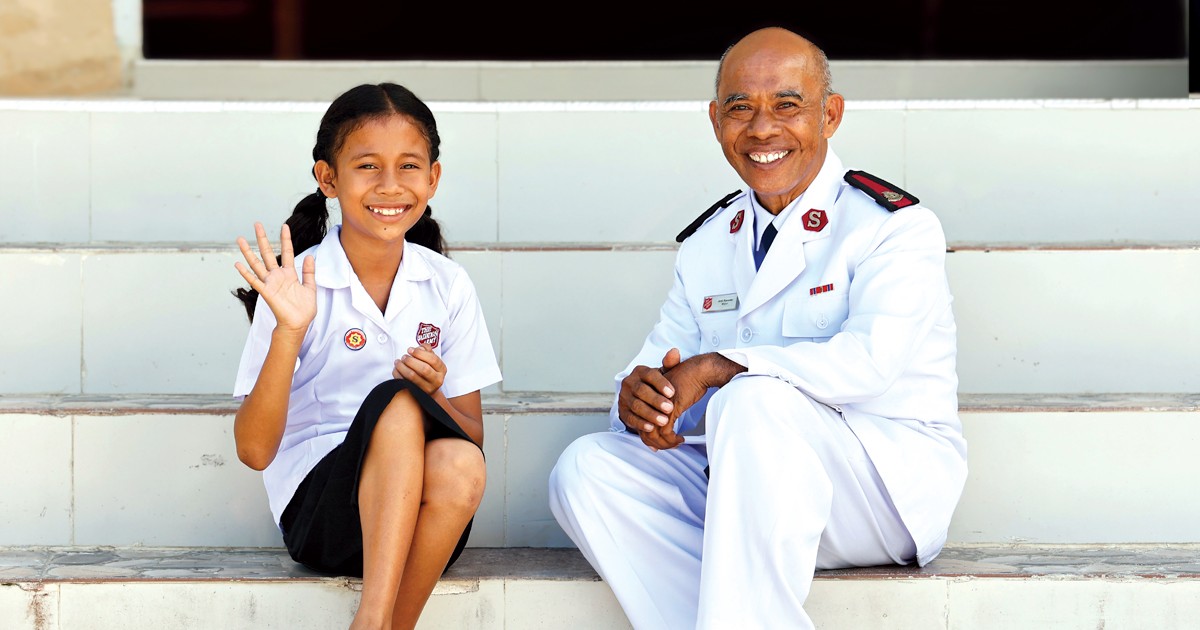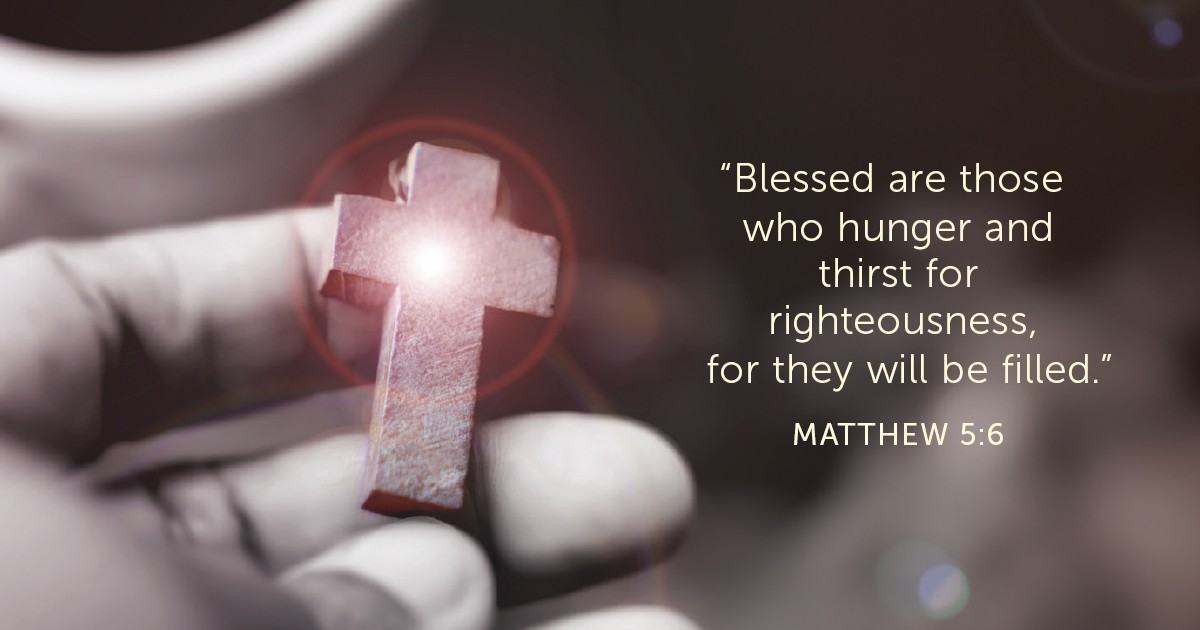Hope! Teams hope for a winning season. Politicians hope for electoral victory. Parents hope their children will be safe. The Salvation Army announces “hope” as a core value. But why? When we characterize ourselves as “Giving Hope Today,” what are we really saying? How do we give hope in response to the tragedy of missing and murdered Indigenous women? What does it mean to give hope in response to the methamphetamine crisis that is gripping Canada? Obviously there are no easy answers, but let’s look more closely at this core value in order to understand hope’s character.
Christian hope is grounded in the person of Jesus Christ. Jesus created a hopeful future for individuals and communities. One woman found hope when her hemorrhaging body was healed and she could be restored to her community. Healed lepers could begin to move about freely in their community rather than be required to remain on the margins. One community experienced the hope of economic justice when its chief tax collector welcomed Jesus into his home. Jesus practised reconciliation between antagonistic ethnic groups, and created hope for a new humanity without walls. Wherever Jesus went during his public ministry, he practised hope. Jesus brought God’s future into the present.
Hopes seemed to die with the Crucifixion of Jesus, but we live with the conviction that God raised Jesus from the dead and restored the hope that his saving purposes one day will be fully realized. It’s a future where instruments of warfare will be transformed into instruments of peace (see Isaiah 2:4); it’s a future characterized by the “healing of the nations” (Revelation 22:2), and where “death will be no more” (Revelation 21:4 NRSV); and it’s a future where “righteousness is at home” (2 Peter 3:13 NRSV). One day, salvation will be fully realized. For this reason, the Apostle Paul writes: “For in hope we were saved” (Romans 8:24 NRSV). Salvation is a present reality; salvation is also a future hope. The character of God’s future shapes our practice of hope today. Theologian Reinhold Niebuhr noted that “nothing that is worth doing can be achieved in our lifetime; therefore we must be saved by hope.”
We live in a time when far too many hopes go unrealized. A refugee family comes to Spryfield, N.S., with its hopes, only to have all seven children perish in a fire. Saskatchewan hockey players live with their dreams only to have them crushed in a horrific accident. Muslims go to the mosque in Quebec City and Christchurch, New Zealand, only to have their worship terrorized by gunfire. God’s purposes for our world have not yet been fully realized. However, even in such a time as this we practise hope.
Salvationists practise hope when we take the initiative to host the first church-sponsored pow wow in Canada at Pine Lake Camp, Alta.; hope is practised when the Booth Centre in Winnipeg opens a shelter for homeless members of the LGBTQ+ community; hope is practised when St. John’s Temple, N.L., creates a beginners’ band for adults who thought they might never learn to play an instrument; Hope in the City events draw attention to the Army’s work, with the help of people like Olympic skaters Tessa Virtue and Scott Moir; the international project called Others—Trade for Hope gives hope to those caught up in human trafficking; the Gifts of Hope program enables farmers in Malawi to develop more productive methods of farming. These are all small gestures of hope, but they make a difference now!
Hope, however, doesn’t just happen. Hope is not a commodity that we can simply take off a shelf to give to others. Hope is nurtured in a community that values it. For this reason, Salvationists meet together to worship the triune “God of hope” (Romans 15:13). Our worship of God helps us to realize that we are caught up in something much greater than ourselves. As we worship, our imaginations engage with the biblical stories of hope, especially the stories of Jesus. We engage in the hard work of becoming a community characterized by hope. As a community of Salvationists, together with volunteers and employees, we engage in God’s mission characterized by hope. Even if the need is so much greater than the difference we make, we practise hope because God’s vision for our world will one day be fully realized.
Major Ray Harris is a retired officer in Winnipeg.
This is the second in a series on the Canada and Bermuda Territory’s new core values: dignity, hope, service and stewardship (visit salvationist.ca/corevalues).
Photo: © Laikwunfai/iStock.com
Christian hope is grounded in the person of Jesus Christ. Jesus created a hopeful future for individuals and communities. One woman found hope when her hemorrhaging body was healed and she could be restored to her community. Healed lepers could begin to move about freely in their community rather than be required to remain on the margins. One community experienced the hope of economic justice when its chief tax collector welcomed Jesus into his home. Jesus practised reconciliation between antagonistic ethnic groups, and created hope for a new humanity without walls. Wherever Jesus went during his public ministry, he practised hope. Jesus brought God’s future into the present.
Hopes seemed to die with the Crucifixion of Jesus, but we live with the conviction that God raised Jesus from the dead and restored the hope that his saving purposes one day will be fully realized. It’s a future where instruments of warfare will be transformed into instruments of peace (see Isaiah 2:4); it’s a future characterized by the “healing of the nations” (Revelation 22:2), and where “death will be no more” (Revelation 21:4 NRSV); and it’s a future where “righteousness is at home” (2 Peter 3:13 NRSV). One day, salvation will be fully realized. For this reason, the Apostle Paul writes: “For in hope we were saved” (Romans 8:24 NRSV). Salvation is a present reality; salvation is also a future hope. The character of God’s future shapes our practice of hope today. Theologian Reinhold Niebuhr noted that “nothing that is worth doing can be achieved in our lifetime; therefore we must be saved by hope.”
We live in a time when far too many hopes go unrealized. A refugee family comes to Spryfield, N.S., with its hopes, only to have all seven children perish in a fire. Saskatchewan hockey players live with their dreams only to have them crushed in a horrific accident. Muslims go to the mosque in Quebec City and Christchurch, New Zealand, only to have their worship terrorized by gunfire. God’s purposes for our world have not yet been fully realized. However, even in such a time as this we practise hope.
Salvationists practise hope when we take the initiative to host the first church-sponsored pow wow in Canada at Pine Lake Camp, Alta.; hope is practised when the Booth Centre in Winnipeg opens a shelter for homeless members of the LGBTQ+ community; hope is practised when St. John’s Temple, N.L., creates a beginners’ band for adults who thought they might never learn to play an instrument; Hope in the City events draw attention to the Army’s work, with the help of people like Olympic skaters Tessa Virtue and Scott Moir; the international project called Others—Trade for Hope gives hope to those caught up in human trafficking; the Gifts of Hope program enables farmers in Malawi to develop more productive methods of farming. These are all small gestures of hope, but they make a difference now!
Hope, however, doesn’t just happen. Hope is not a commodity that we can simply take off a shelf to give to others. Hope is nurtured in a community that values it. For this reason, Salvationists meet together to worship the triune “God of hope” (Romans 15:13). Our worship of God helps us to realize that we are caught up in something much greater than ourselves. As we worship, our imaginations engage with the biblical stories of hope, especially the stories of Jesus. We engage in the hard work of becoming a community characterized by hope. As a community of Salvationists, together with volunteers and employees, we engage in God’s mission characterized by hope. Even if the need is so much greater than the difference we make, we practise hope because God’s vision for our world will one day be fully realized.
Major Ray Harris is a retired officer in Winnipeg.
This is the second in a series on the Canada and Bermuda Territory’s new core values: dignity, hope, service and stewardship (visit salvationist.ca/corevalues).
Photo: © Laikwunfai/iStock.com










Comment
On Saturday, June 29, 2019, Beate Askerlund said:
Leave a Comment